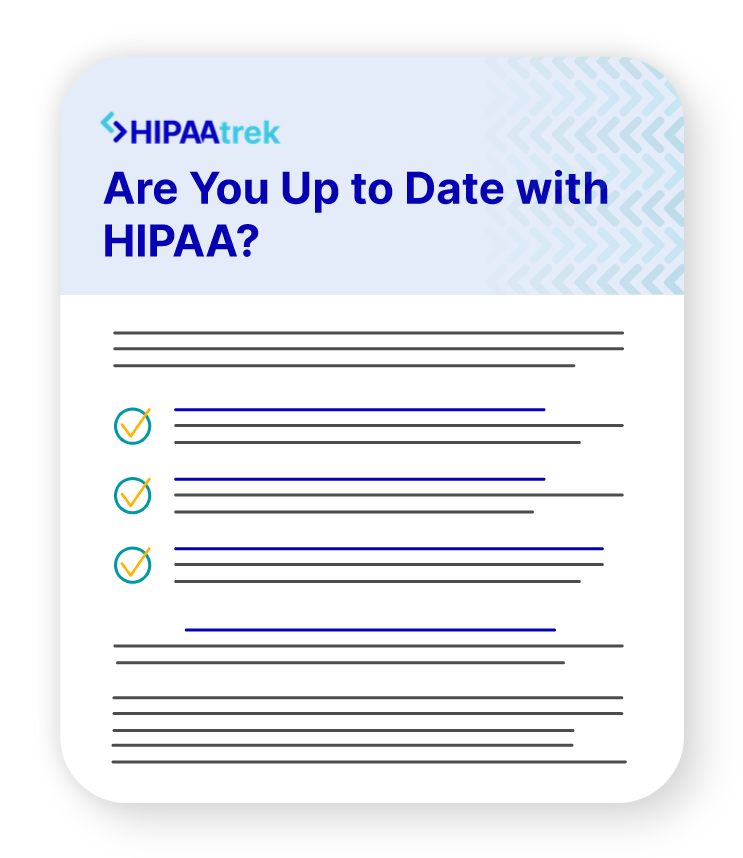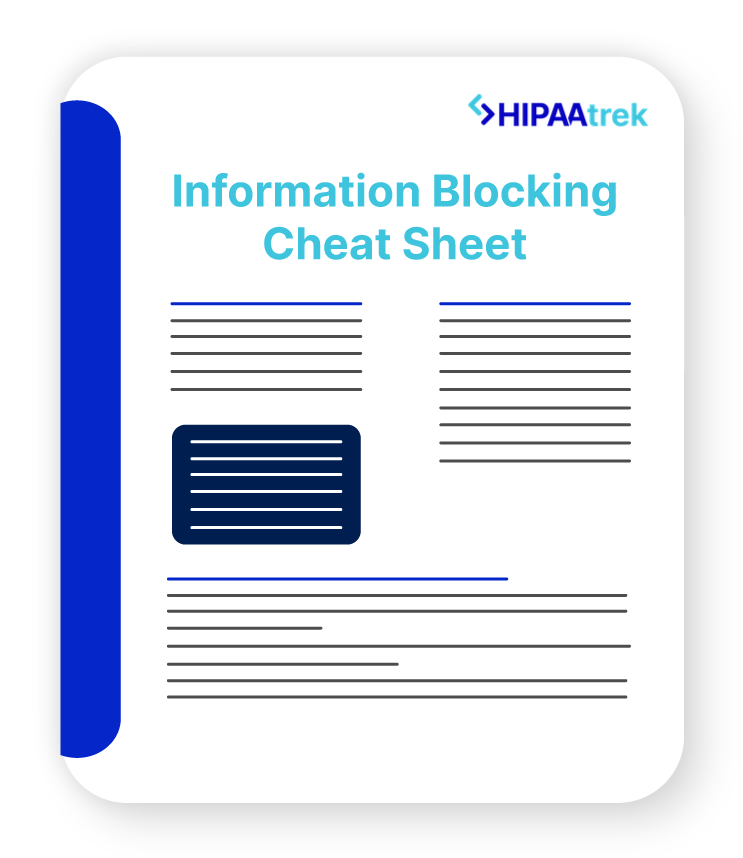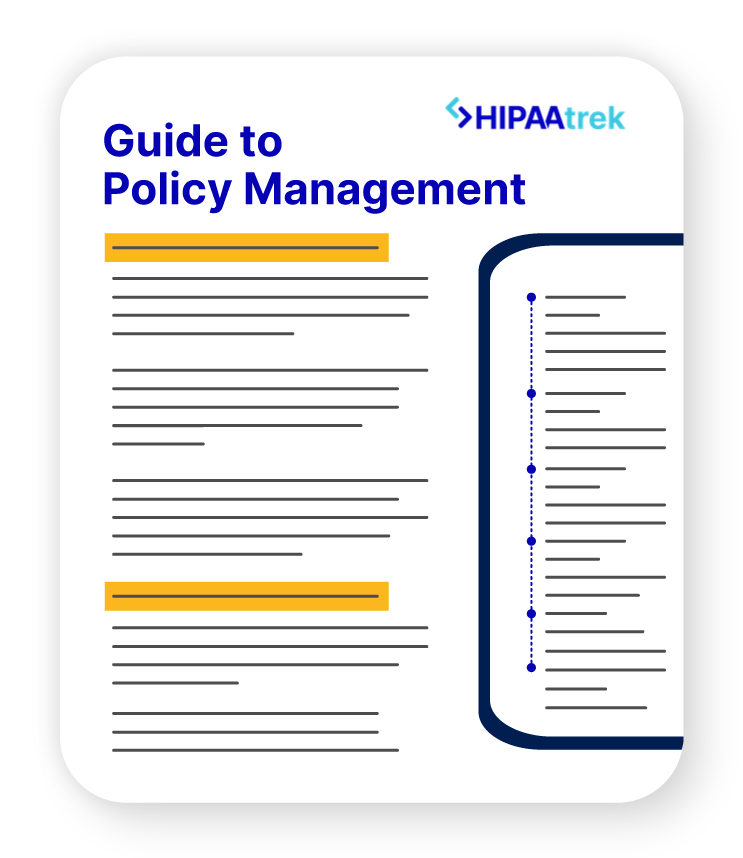When divorced or separated parents approach you about their child’s medical records, it can be hard to know what to do. Should you share the minor’s medical information? Who exactly should have access to this information? Are there times when you should refuse this request?
Let’s take a look at an overview of parents’ rights to their child’s medical records, minors’ rights to their own records, and guidelines for releasing minors’ medical records.
Parental Rights to a Minor’s Medical Records
Generally, the HIPAA Privacy Rule affords parents access to their child’s medical records because they’re considered their child’s “personal representative.” However, the parent isn’t considered their child’s personal representative in the following three situations:
- the minor consents to their own care (see below),
- the minor obtains care at the court’s direction, or
- the parent agrees to allow their child to speak confidentially with the provider.
Even in these situations, parents are often free to access their child’s medical records, if the state law allows.
Age of Consent
Keep in mind, a parent sometimes has to get their child’s consent to access medical records. Age of consent refers to exceptions in state law to allow a minor to assume adult authority in their own healthcare before the age of majority (which is usually age18). So, you must look first at the age of consent to determine if the parent is the child’s personal representative or if the child must give consent to release their medical records to parents.
Furthermore, some states, such as Iowa and Connecticut, leave it to individual healthcare providers to decide the consent age. In a recent news story, an Iowa father was surprised to discover he couldn’t access his 12-year-old daughter’s medical record from the University of Iowa Hospitals and Clinics. This is because the state of Iowa doesn’t have a set age of consent, leaving the University of Iowa Hospitals and Clinics free to decide the consent age.
This story highlights the inconsistency between state laws on parental access to a minor’s medical records. You as a healthcare organization must familiarize yourself with your state’s laws.
Non-Custodial Parents, Legal Guardians, and Other Considerations
But does a non-custodial parent have rights to medical records? Oftentimes, yes. Even if one parent has full custody of the child, the non-custodial parent can still access the child’s records if their “parental rights” haven’t been removed.
Keep in mind some special considerations outlined by Total Medicine Compliance:
- Parents can have their parental rights removed by a court, which bars them from accessing their child’s medical records. For example, a court may remove a non-custodial parent’s parental rights.
- Legal guardians have parental rights granted by the court. However, the parents maintain their parental rights unless these rights have been removed by the court. The same applies to social workers granted parental rights over a child in state custody.
- Biological parents of an adopted child have given up their parental rights and so can’t access the child’s records.
- Either parent can authorize extended family (grandparent, stepparent, etc.) to access their child’s medical records.
Example
A stepmother requests the medical records of her husband’s 9-year-old child. The woman doesn’t present any authorizations stating her authority to access the child’s records. Is the clinic obligated to give the stepmother access to the child’s medical records?
No. One of the child’s parents would have to authorize the disclosure. For example, if the child’s father authorizes his wife (the child’s stepmother) to access the medical records, then the clinic must give her access. The child’s biological mother can’t interfere with who the father chooses to grant access to.
However, if the father is a non-custodial parent whose rights have been removed by the court, then the biological mother would be the only one able to authorize the stepmother to access the child’s records.
Minors’ Rights to Their Own Medical Records
A minor is allowed to consent to confidential healthcare in two cases:
Firstly, the minor is emancipated. Emancipated minors are legally separated from their parents or guardians before age 18, are responsible for supporting themselves, and have the same rights as adults. In most states, minors are considered emancipated if they get married, become parents, enlist in the military, or receive court permission.
Emancipated minors have control over their own treatment and medical records, so you must get their consent before disclosing their information to others. If a minor claims to be emancipated, verify that they are legally emancipated and entitled to confidentiality by examining the court documents.
Secondly, the minor is seen for treatments not requiring parental consent. Minors may be able to get certain treatments without parental involvement before reaching the age of majority (usually 18). Examples include treatment for substance abuse, mental healthcare, contraceptive care, and STD/STI screening and treatment. The age of consent for these treatments varies from state to state, with some states (such as California) allowing minors as young as 12 to consent.
Additionally, minors receiving Title X-funded services are entitled to confidentiality, though family involvement should be encouraged. Services that fall under Title X include contraception, STI treatment, pregnancy tests and counseling, and educational programs. Minors receiving these treatments at Title X-funded facilities do not need parental consent, so you must get the minor’s consent to disclose this confidential information to parents or guardians.
Guidelines for Releasing Minors’ Medical Records
The Privacy Rule defers to state law on whether or not a healthcare provider can share a minor’s medical information with a parent or legal guardian. It’s always a good idea to first check your state law.
However, if your state law is silent on the matter, and the parent isn’t a personal representative of the minor, then you must exercise professional judgment on whether or not to allow a parent access to the minor’s medical records. See HHS for guidance on personal representatives.
Here are some guidelines to help you identify the right course of action:
- Verify the identity of the adult requesting the minor’s medical records to make sure they have the legal authority, as suggested by Coverys’ Risk Management Department. This may involve asking for a copy of the divorce decree, custody agreement, or court order.
- Verify that a minor is legally emancipated. McNary suggests examining the court documents carefully to determine exactly who may consent to treatment and what level of confidentiality the minor is entitled to.
- Determine how much information to release and to whom it may be released (parents, personal representatives, minors, emancipated minors, etc.).
- Develop policies and procedures for releasing medical records. Make sure your staff is trained on how to respond to complex cases involving minors.
- Get written authorization before releasing records.
- When presented with a court order, consult with legal counsel before responding to the request.
- If you suspect child abuse or neglect and believe that allowing parents access to the child’s records could endanger the child, you should not grant the parents access to the child’s records. Check with your state law for domestic violence, abuse, and neglect reporting requirements.
READ MORE: HIPAA Verification Guidelines: How to Verify a Request for PHI
In Summary
Divorced or separated parents can present a challenge to healthcare providers. Parents may not understand their own rights and access to their child’s medical information, and it is your responsibility to handle their requests with accuracy and confidentiality.
The HIPAA Privacy Rule generally allows parents to access their child’s medical records, but, as we have seen, there are several exceptions. The Privacy Rule also defers to state law. Therefore, consult your state’s minor consent laws first when presented with a request for a minor’s medical records.

Are you up to date with HIPAA? Check out our Guide to Changing Regulations
Download this cheat sheet to help you prepare for anticipated changes to HIPAA regulations.












